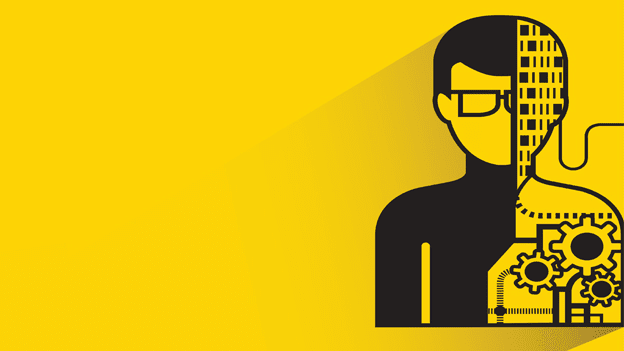HR Tech 2.0: The shift from automation to empowerment

Being a co-founder of an HR Tech startup, I have been keenly following what’s trending in terms of views and predictions about the next wave of HR Tech. In particular, the inspiring speech by Kai-Fu Lee (Founder of Sinovation Ventures and former President of Google China) at TED Vancouver in April, and recent articles by Josh Bersin (Deloitte), have piqued my interest and thoughts.
Here, I offer a summary of their combined insights and show how these project a clear and compelling view of what HR Tech 2.0 might entail and emphasize. For one, it would be radically different from the current wave of HR Tech with its significant focus on automation and analytics.
While HR automation is fundamentally about reducing costs and even headcount, we shall see HR Tech 2.0 moving up the value chain and offering innovative solutions that maximize the potential and contribution of every employee – because they do count.
Jobs that tech can’t replace
At TED Vancouver this year, Kai-Fu Lee shared a helpful chart that shows how technology and artificial intelligence (AI) will impact the different categories of jobs and careers. Essentially, it shows that jobs that can be automated and are not compassion-based will be taken over by AI, robots and algorithms – in a matter of time. This is already happening to routine-based jobs in many sectors and will continue its rapid advance.
However, jobs that will continue to be held by humans are those that require creativity and compassion. Lee’s sharing did not just stem from a conceptual standpoint. Having battled stage 4 lymphoma in 2013, with a prognosis that he might have only months to live, Lee concluded that relationships and the creative possibilities that could come out of human collaborations are what ultimately gives meaning to life. He added that robots, no matter how brilliant, can never love.
As AI replaces roles in both blue- and white-collar fields, Lee says society must focus on creating ‘jobs of compassion’. While this would be inevitably true and needful, I would also like to call attention to the reverse perspective of infusing compassion into existing jobs. For example, a customer service staff who is client-centric and empathizes, listens and probes effectively, and goes the extra mile, is in an effective position to uncover deeper customer needs and insights, build relational capital and obtain referrals that could eventually lead to future sales – as compared to an AI-powered customer service portal which is attempting to replace his role.
In his latest article ‘Finding Meaning in the Age of AI’ (Oct 2018), Lee offers a similar example of a compassionate caregiver offering encouragement and hope to patients, which AI cannot do.
That spot in HR tech that no one’s claiming (yet)
Drawing the focus to HR and the trending ‘future of work’ theme – Josh Bersin argues along similar lines as Lee, and observes that 'for many years the focus on HR technology was to automate and integrate HR practices'. This refers to 'business as usual'-type processes such as payroll, personnel record-keeping, and hiring.
Bersin predicts a 'massive shift from automation to productivity', and poses this pivotal question, "Can we build HR software that really improves productivity and helps teams work better together?"
He then talks about making HR technology 'more conversational' (think chatbots, messages with tailored advice for you and augmented analytics).
Here, again, I would like to go one step further and suggest that HR Tech that actually facilitates conversations between people – instead of replacing human conversations or offering prescriptive advice – is the ultimate HR technology that will drive authentic people engagement and performance, making the workplace a happier and more human experience. In other words, HR Tech that seeks to empower people, rather than displace them, will be the new frontier.
HR tech that goes beyond displaying analytics to catalysing engagement
While there are many information-based tools for tracking and reporting employee performance metrics, there are no substantial action-based tools that managers can actually use to coach for performance. Let me offer an example – the annual performance appraisal. HR Information Systems provides comprehensive tools to manage this process. We can track appraisal completion rates, review rating distribution, and access many more metrics. While the system can increase process efficiency and convey all kinds of metrics (the ‘What’), it cannot enhance the quality of the performance conversation between line managers and employees (the ‘How’).
HR tech 2.0 lifts HR from support function to change agent
From the above insights, four clear thrusts emerge that define HR Tech 2.0 as technology that:
- Goes beyond automation to improving productivity
- Enables, rather than replaces, people
- Promotes empathy and creative collaboration at work
- Provides ‘how’ tools to build growth-focused work cultures
The stage is set for the entry of HR Tech 2.0 which will go beyond facilitating process efficiency to unlocking a new level of people engagement and effectiveness.
From a strategic standpoint, HR Tech affords the HR function in every organization the opportunity to come out of the shadows, out of its typical identity as a ‘support function’, and start offering answers that the business is desperately seeking – not just solutions to reduce cost, but innovative ways to unlock the energy and inner resourcefulness of its people and talent towards creating competitive and lasting value for the business.
















